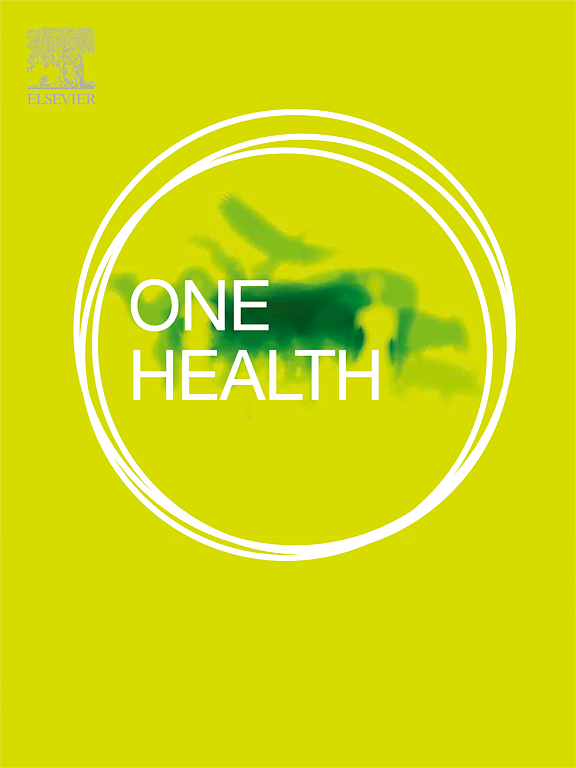大流行后的一个健康:揭示绿色空间和人狗互动在长期健康和福祉中的作用
IF 4.5
2区 医学
Q1 INFECTIOUS DISEASES
引用次数: 0
摘要
2020年2019冠状病毒病爆发期间实施的社会隔离措施对公众健康和福祉产生了持久影响。为此,越来越多的人开始讨论这一大流行病对人类健康和福利的长期影响。解决这些复杂的挑战需要创新的、跨学科的方法,这些方法以整合社会科学和自然科学观点的概念框架为基础。在人-动物-绿地互动的交叉点,“同一个健康”框架已成为整体健康研究的重要推动力。然而,对于如何将这一框架应用于调查与这些动态相关的相互关联的健康和福祉结果,仍然缺乏全面的审查。为了填补这一空白,本研究进行了系统的范围审查,以确定文献中的模式、差距和关键主题,同时概述了未来研究的优先事项和考虑因素。按照标准化的PRISMA指南,审查采用了明确定义的纳入和排除标准,以及双审稿人筛选和数据提取程序。总共纳入了29项研究,所有这些研究都直接或间接利用了“同一个健康”框架。这些研究分为两个主要主题领域:(1)大流行后绿色空间在促进人类健康方面的作用;(2)大流行期间人与动物之间的情感互动。文献中一个值得注意的趋势是将一致性感作为健康和福祉的一个关键维度纳入“一个健康”框架,强调了人狗绿色空间互动对有益健康过程做出有意义贡献的潜力。所确定的研究数量有限也反映了目前在既定的“同一个健康”研究中将福祉作为核心支柱的代表性不足。基于现有证据,本综述为寻求通过“同一个健康”视角探索健康和福祉的研究人员提供了基础参考。它为未来调查人-狗-绿地互动对福祉的协同效应提供指导,并提出数据驱动的干预措施和政策建议,以解决COVID-19的一般健康结果和长期影响。本文章由计算机程序翻译,如有差异,请以英文原文为准。
Post-pandemic one health: Unpacking the role of greenspaces and human-dog interactions in long-term health and well-being
The social isolation measures implemented during the outbreak of COVID-19 in 2020 have had lasting effects on public health and well-being. In response, a growing body of discourse has emerged to examine the long-term impacts of the pandemic on human health and welfare. Addressing these complex challenges requires innovative, interdisciplinary approaches grounded in a conceptual framework that integrates perspectives from both the social and natural sciences.
At the intersection of human-animal-green space interactions, the One Health framework has become a prominent driver of holistic health research. However, there is still a lack of comprehensive reviews on how this framework has been applied to investigate the interconnected health and well-being outcomes associated with these dynamics. To fill this gap, the present study conducted a systematic scoping review to identify patterns, gaps, and key themes in the literature, while outlining priorities and considerations for future research.
Following standardized PRISMA guidelines, the review employed clearly defined inclusion and exclusion criteria, along with dual-reviewer screening and data extraction procedures. A total of 29 studies were included, all of which directly or indirectly utilized the One Health framework. These studies were categorized into two primary thematic areas: (1) the role of green spaces in promoting human health in the post-pandemic context, and (2) emotional interactions between humans and animals during the pandemic. A notable trend in the literature is the incorporation of the Sense of Coherence as a key dimension of health and well-being within the One Health framework, highlighting the potential of human-dog-green space interactions to contribute meaningfully to salutogenic health processes.
The limited number of studies identified also reflects the current underrepresentation of well-being as a core pillar within established One Health research. Based on existing evidence, this review provides a foundational reference for researchers seeking to explore health and well-being through a One Health perspective. It offers guidance for future investigations into the synergistic effects of human-dog-green space interactions on well-being, and proposes data-driven interventions and policy recommendations to address both general health outcomes and the prolonged effects of COVID-19.
求助全文
通过发布文献求助,成功后即可免费获取论文全文。
去求助
来源期刊

One Health
Medicine-Infectious Diseases
CiteScore
8.10
自引率
4.00%
发文量
95
审稿时长
18 weeks
期刊介绍:
One Health - a Gold Open Access journal.
The mission of One Health is to provide a platform for rapid communication of high quality scientific knowledge on inter- and intra-species pathogen transmission, bringing together leading experts in virology, bacteriology, parasitology, mycology, vectors and vector-borne diseases, tropical health, veterinary sciences, pathology, immunology, food safety, mathematical modelling, epidemiology, public health research and emergency preparedness. As a Gold Open Access journal, a fee is payable on acceptance of the paper. Please see the Guide for Authors for more information.
Submissions to the following categories are welcome:
Virology,
Bacteriology,
Parasitology,
Mycology,
Vectors and vector-borne diseases,
Co-infections and co-morbidities,
Disease spatial surveillance,
Modelling,
Tropical Health,
Discovery,
Ecosystem Health,
Public Health.
 求助内容:
求助内容: 应助结果提醒方式:
应助结果提醒方式:


